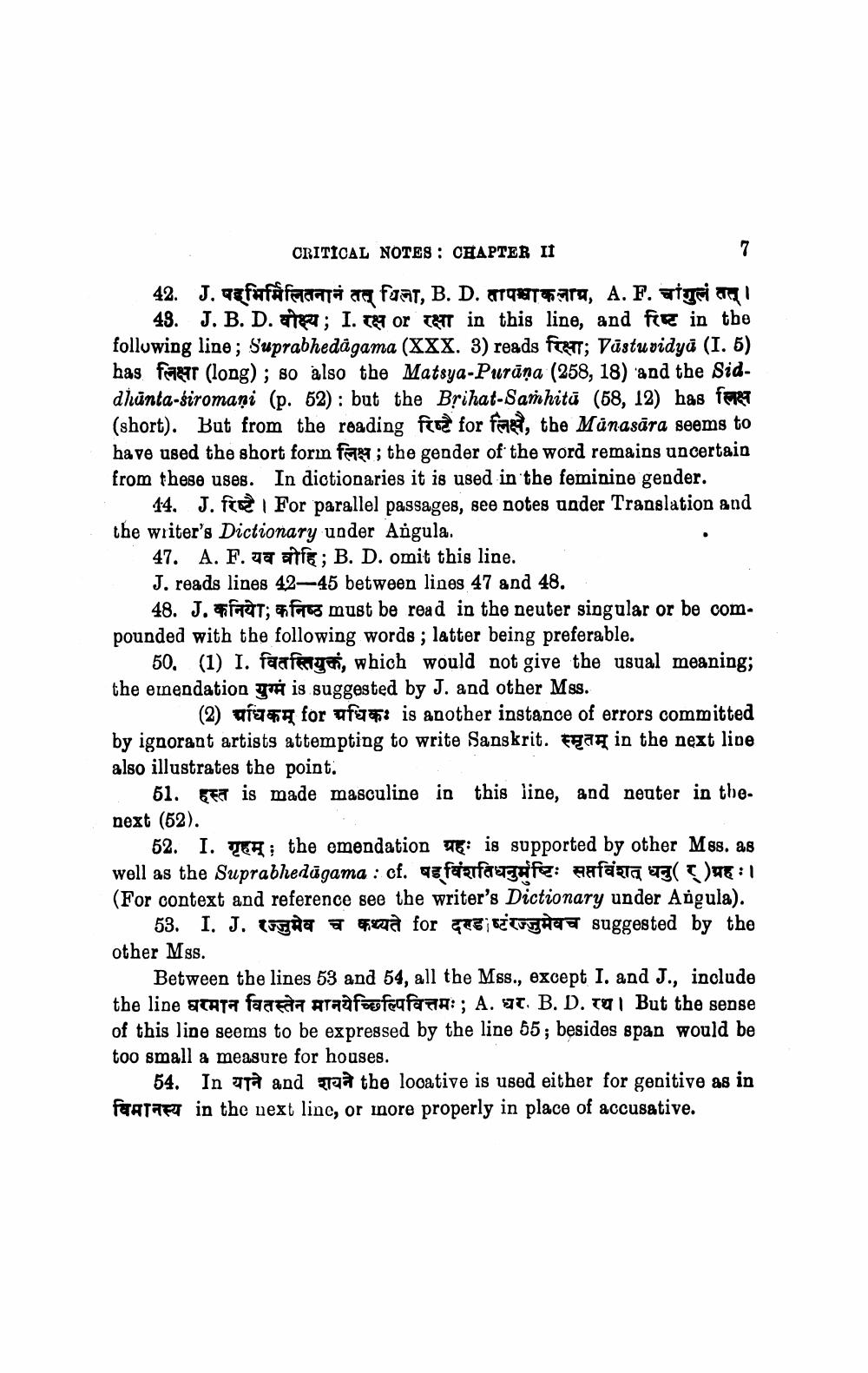________________
CRITICAL NOTES : CHAPTER II
42. J. axfüfå facanta are foar, B. D. OTOMATA, A. F. turi Il
43. J. B. D. 78; I. 77 or TRT in this line, and five in the following line; Suprabhedå gama (XXX. 3) reads FERIT; Vāstuvidyā (I. 5) has fazar (long) ; so also the Matsya-Purāņa (258, 18) and the Siddhūnta-širomaņi (p. 52) : but the Brihat-Samhità (58, 12) has fara (short). But from the reading free for fast, the Manasāra seems to have used the short form fase; the gender of the word remains uncertain from these uses. In dictionaries it is used in the feminine gender.
14. J. Free For parallel passages, see notes under Translation and the writer's Dictionary under Angula.
47. A. F. Ja atre; B. D. omit this line. J. reads lines 42—45 between lines 47 and 48.
48. J. #FT; Fatos must be read in the neuter singular or be compounded with the following words ; latter being preferable.
50. (1) I. faafetya, which would not give the usual meaning; the einendation you is suggested by J. and other Mss.
(2) gig for afg: is another instance of errors committed by ignorant artists attempting to write Sanskrit. that in the next live also illustrates the point.
51. EET is made masculine in this line, and neuter in the next (52).
52. I. TEH; the emendation : is supported by other M88. as well as the Suprabhedāgama : cf. qzfaafaagafe: Aafata ( ? )46:1 (For context and reference see the writer's Dictionary under Angula).
53. 1. J. (FHÀG à for TECTIEHTE suggested by the other Mss.
Between the lines 53 and 54, all the Mss., except I. and J., include the line घरमान वितस्तेन मानयेच्छिल्पिवित्तमः; A. घर. B. D. रथ। But the sense of this line seems to be expressed by the line 55; besides span would be too small a measure for houses.
54. In gta and Tat the looative is used either for genitive as in Fantaet in the next linc, or inore properly in place of accusative.




